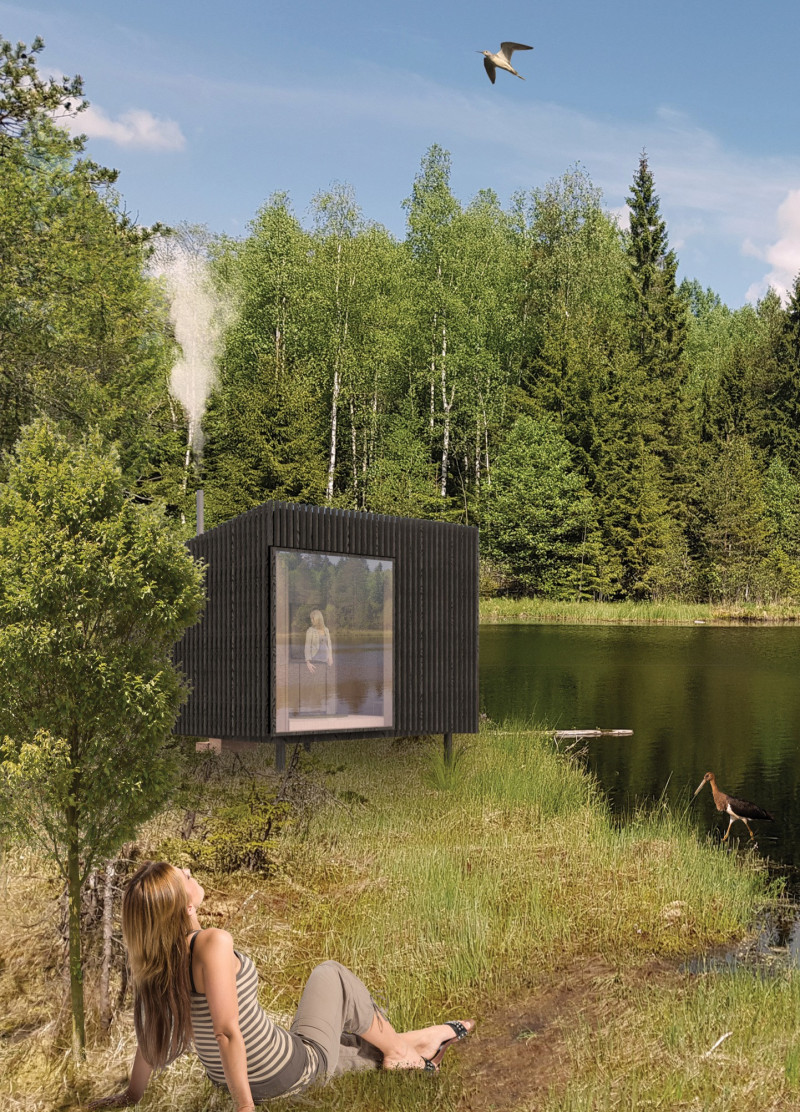5 key facts about this project
Sustainable design is a key focus of the project, evident in the chosen materials and architectural features. The cabins employ charred timber cladding, a technique that offers both aesthetic value and improved weather resistance, promoting longevity against environmental factors. Plywood is utilized for interior finishes, contributing to a warm, inviting atmosphere while maintaining structural integrity. Expansive glass elements are incorporated to enhance daylight penetration and provide unobstructed views of the surrounding forest, reinforcing the connection between indoor spaces and the environment.
The organization of the cabins reflects a compact yet functional layout. Key components include an entry/storage area, a dedicated meditation room, a communal living and dining area, and a bathroom. This thoughtful design ensures efficient use of space while promoting a seamless flow between different functional zones. The interiors are characterized by a minimalist aesthetic, featuring low-level windows, operable skylights, and an integrated kitchen that minimizes clutter and fosters a sense of cohesion.
A distinctive feature of the project is its emphasis on mindfulness and sensory experience. By carefully positioning the cabins to capture optimal natural light and views, the design encourages users to engage with their surroundings. Unique elements, such as the use of low-level windows, enhance the experience of the forest environment while promoting a sense of tranquility and solitude.
The Komorebi Forest Cabins stand out due to their focus on sustainability, functional spatial organization, and integration with nature. Their design invites contemplation and encourages a deeper connection with the natural world, making them an ideal retreat for individuals seeking restorative experiences. To explore this project further and gain deeper insights into its architectural plans, sections, designs, and ideas, readers are encouraged to delve into the comprehensive presentation of the Komorebi Forest Cabins.


























